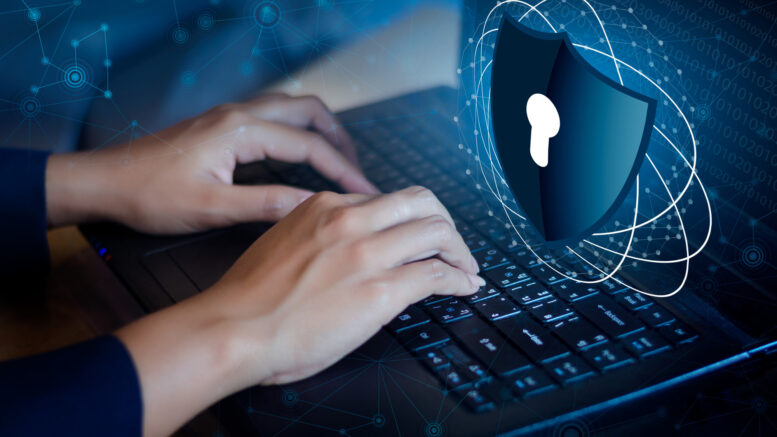Data privacy has been on everyone’s mind lately. In 2019,there were almost 1,500 data breaches. That means sensitive information got revealed and millions of records accessed.
Data breaches can get kept down when the right systems get used. Avoided them helps you save money and guards your company’s reputation.
What is single sign-on? It allows many people to use the same authentication session. Keep on reading to learn how this could reduce security issues and why your business should have it.
What Is Single Sign-On?
SSO authentication is a system that lets users sign on to an application with one set of credentials. It uses a central directory for access control to other systems. The employee credentials get enrolled for several applications in a single sign-on program.
It validates a user with a certificate that gets exchanged. Information gets sent from an identity provider to a service provider. The certificate exchange makes sure the information comes from a trusted entity.
When users log in to various applications, it creates chances for hackers to get into the system. Having a single sign-on minimizes that threat. Sensitive information is more secure.
Some organizations use SSO authentication software as a service for regulatory compliance. They get one centralized audit trail. That helps to prove that systems are in place to create data privacy and block any breaches.
Increasing password security is why many businesses turn to SSO authentication. MSP password management works to maintain data privacy and increase password security.
Two-Factor Authentication
Two-factor authentication gives a second layer of security when signing on to an application. It provides an extra measure of data security because it asks for information after employee credentials.
Sometimes a token gets sent to a phone by text or authentication app, which has to get used within a specific timeframe. The timeframe varies by application but can be as little as thirty seconds. That keeps scammers from accessing the application.
The second verification could be a fingerprint. When someone else attempts to use your phone or device, it retains data privacy by locking the system. The two-factor authentication method makes users feel more secure with added protection.
You can think of it as software as a service that gives you another way to identify yourself. You are proving that you’re the one signing into your application or device.
Data Privacy
Data breaches have gotten hard to prevent in some cases. The more we come up with strong passwords, the better the hackers get at breaking in.
Sometimes breaches go unnoticed for long periods. That means that sensitive information floats around and can get used by criminals.
Many people have had their identities stolen. That can get stressful because banks will freeze accounts while they sort things out. If you don’t have cash on hand or another means of payment, it could leave you in a lurch.
People use easy passwords they can remember. They tend to forget that if it’s easy for them, it will be easy for others, too. There are computer programs that can run algorithms to figure out password combinations.
Some have used passwords with no number or special characters. The word ‘password’ has also gotten used, which means you make cyber-attacks simple.
Software as a Service
All software services have some vulnerabilities. Many companies put out patches to fix these after finding threats.
There may be technical issues that get exploited. If those don’t get fixed soon, hackers will try to use that to their advantage.
Malware is malicious software that gets used for breaking into computer systems. It can track what users type, which can reveal passwords or other data.
Some malware locks up an entire network. The criminal will then demand money to unlock the system. If the organization can’t get back into their system, they might get forced to pay money for ransom.
With so many organizations using different software services, it is vital to maintain data privacy. SSO authentication will give that extra piece of security.
We need software systems for many different reasons. We use them for banking applications, work, and so on. With so many systems in place, we have to stay diligent about data privacy.
Benefits of SSO Authentication
Data privacy is not the only benefit of using SSO authentication. Controlling security risks is the main reason companies use it, but there are others.
Some feel that employee productivity goes up when these applications get used. Users type in their employee credentials and use one password. They get access to different applications, and one system signs them in.
That reduces the need to open up various programs and sign into different systems. It also keeps them from getting locked out of applications as much. That means no holding for the helpdesk to reset your password.
It may lower an organization’s IT costs because some SSO authentication services let users reset their passwords. People hate memorizing tons of passwords. When SSO authentication gets installed, that frustration goes away.
Now users have to remember one password that opens all the systems they need. They don’t have to keep up with many combinations for each application. That streamlines the software experience for the user.
Why Your Company Needs It
What is single sign-on, and why does your company need it? SSO authentication simplifies the user sign-on process while increasing security control.
It has made authentication easy and secure. It also makes the user experience hassle-free across all applications. Now using employee credentials and one password, users can focus on more urgent tasks.
Since users only have to set up one password, they might make that one strong because they’ll remember it. Now you will have security and simplicity at your fingertips. Check out our other articles for more lifestyle and technology tips!

Be the first to comment on "What Is Single Sign-On and Why Does Your Company Need It for Data Privacy?"